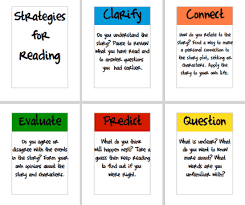A two day journey through the impact that Manaiakalani has in education.
'The Manaiakalani Programme'
Digital Fluency / Accelerated Outcomes
An intentional, focused, evidence-based programme to support your community of learning move from the analogue world to the digital world
Increasing teacher effectiveness and accelerating learning outcomes in this digital environment.
Day One ... we visited two schools on the Manaiakalani Journey ... seeing children in action.
"Desperation into Admiration" - the future for our children
This is the difference that comes for Manaiakalani being involved in our community, our learning, our education!
How fortunate are we to be a part of this outreach programme that is changing lives, adding value and making the world a better place for all learners.
Through Manaiakalani we not only make the future for our learners brighter yet ours also!
Young people who are:
“confident, connected, actively involved, lifelong learners”
NZC 2017
 Who are instructional Leaders?
Who are instructional Leaders?
'All who exercise influence to make a positive difference'
Vivianne Robinson 2011
'Learn, Create, Share'
Our mantra that is the focus of our delivery in the class to make learning for the children more authentic and to increase student agency!
It is through this model that my own learning and skill in ICT for the betterment of my teaching world, my learning world and my personal world is developing!
SHMOOSHED - A new word that means just as it sounds.
With the support of the partnership between Manaiakalani and Wolf Fisher we have the benefit of gather, sharing and analysing data in such a way that we can build on and improve the learning outcomes for all students. Together we can learn to make the most of all learning opportunities.
From the data gathered overtime the investigation into BEST practice is now benefiting us all! The breakdown of the data- the findings have assisted us in identification of these elements that make the difference to not just learning yet acceleration.
Just as we set deliberate acts of learning for our students we can also foster this for our teachers in order to make change and to increase acceleration and achievement for our students. Manaiakalani and Wolf Fisher have identified the strengths and weaknesses across our cluster and it now our responsibility to respond to this proactively and to change our practice. Robust discussions in our schools and across our cluster will support this change.
This statement may seem logical yet is it intentionally part of my daily teaching? If not it soon will be!!
Collaboration ... must be part of the reading process and reading is a language based activity and discussion will strengthen the outcomes!
Student Agency- learners selecting the text to read and the way they will share their findings increases engagement which will increase ability.
A HUGE bonus today was our opportunities to talk in groups across not only clusters yet also the regions ... this has been very powerful to bring to light where we are at in our clusters and that we share the same challenges and having them openly discussed and solutions offered has been so valuable ... learning from clusters that a five years down the track is brilliant
 As in writing ... when our focus moved from teaching surface features to focusing on the deep features acceleration occurred ... we now need to shift our teaching focus in reading the same way. Is this the time to increase mine and other teachers understanding of Reading ... to unpack it just as we did for writing, to develop the language of reading ... to move away from teaching to the level to teaching to the need ... to also ignite our own passion for reading.
As in writing ... when our focus moved from teaching surface features to focusing on the deep features acceleration occurred ... we now need to shift our teaching focus in reading the same way. Is this the time to increase mine and other teachers understanding of Reading ... to unpack it just as we did for writing, to develop the language of reading ... to move away from teaching to the level to teaching to the need ... to also ignite our own passion for reading.
T-Shaped Reading is a researched initiative that is well supported as BEST practice by Manaiakalani and supported by Wolf Fisher research data.
Thank goodness Manaiakalani is rewindable as we were given the privileged of listening to innovative teachers that are excelling in their delivery! Each delivery ... 6 minutes long!
MIT- Manaiakalani Innovative Teachers
What do I feel has possibly been lost over time that supports learning and acceleration?
- The Tuakana-Teina philosophy - the planned and formal inclusion of this has faded in our school yet can it be just as powerful when we foster and encourage it as a way of being in our school and for us to encourage the philosophy across the school in order to build relationships, develop confidence and mana within all our students across the curriculum.
- Ubiquitous - "presence everywhere or in many places simultaneously."
- Provocation - 'something that stimulates' ... excitement, instigation, incitement
Investigate ...
SOLO -
DIMIC - Developing the Mathematics Inquiry Community ... NZMATHS
Let's celebrate brave and committed leadership
We are not here to keep you happy in your misery
Pat Snedden
Instructional Leadership
What am I going to do as a leader to make shifts happen?
How am I going to lead our teachers to make the change to accelerate achievement?
Raise teacher understanding so that they rekindle their passion for doing what we love ... increase our pedagogy.
Today has inspired me to believe more in what we can do as a teaching profession through collaboration with our colleagues.
"Alone we can do so little; together we can do so much." – Helen Keller




